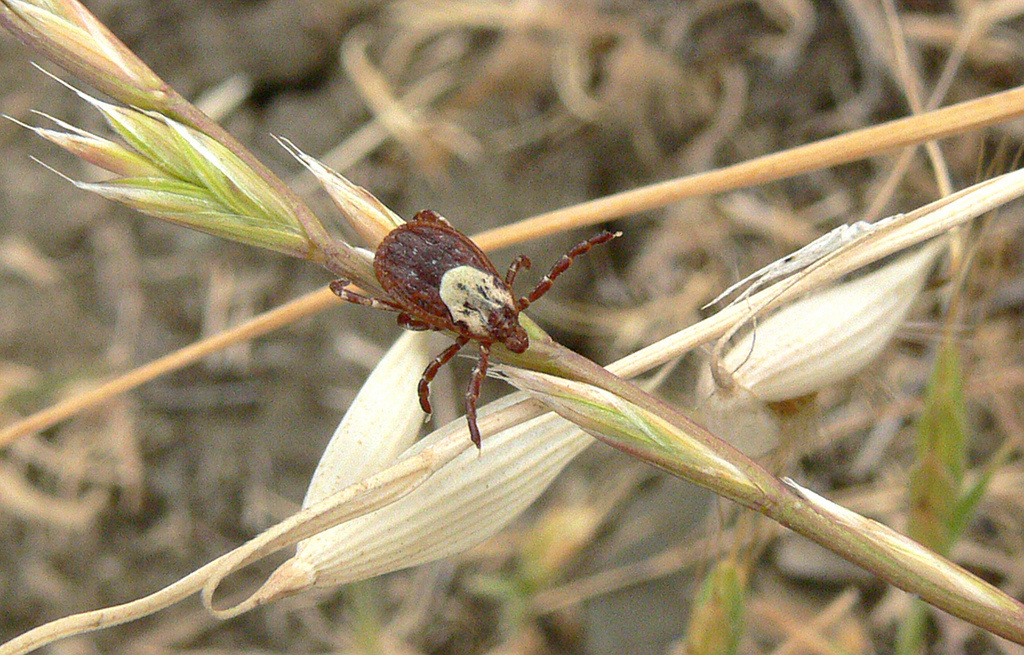First, I will mention that Lyme does not have an "s" on the end. Thus, it is Lyme Disease, not Lymes Disease or Lyme's Disease.
I think one of the most important things that one should know about Lyme Disease is that the whole subject tends to be very controversial in the Veterinary world, as far as diagnosing, treating, and vaccinating. It is also important to realize that Veterinary Medicine is not an exact science. This means that there may not be one right way to do things; or too little is known to be able to determine which way is the best. So, as Veterinarians, we draw on our experiences as a Doctor, and as a pet owner; and do our due diligence in researching the current journals to see what "they" (the "experts") are recommending. But, even the experts don't agree! So, we must come up to our own conclusions.
The major symptom of Lyme disease that I see is limping. Dogs do not get the "bulls eye" lesion that people get. Often in the Spring in our area, there are some bugs that bite the belly of dogs, and they get bright red flat circles on the belly. Those can be mistaken for a "bulls eye". Contact your Veterinarian if you are concerned about any skin lesions that you see.
The second most common symptom is kidney problems - protein in the urine, or full blown kidney failure. Sometimes, the only thing we will find is protein in the urine on a routine screen,and the pet is asymptomatic. There are a lot of reasons why a pet can have protein in the urine, besides Lyme. Your Veterinarian may want to do a urine protein:creatinine ratio on the urine to determine if the protein on the screening test is at a level to be concerned about. You may notice your pet drinking more, urinating more, losing their appetite, or vomiting if your pet is in Kidney Failure from Lyme. Confirming that Lyme is the cause of the kidney failure can be difficult, as there are also many causes of Kidney failure. Lyme disease is fatal when it effects the kidneys.
Their are a couple different tests that can be done for Lyme disease. I feel that the best test that is available is the Idexx 4DX for a screening test; and the Lyme C6 for a confirmation test by Idexx. The C6 can also be used to follow the treatment along. Do I think the C6 is a perfect comfirmation test? Doubtful. But, I believe it is the best test we have out there. As I discussed earlier, your Vet may have his/her own experiences and opinions on this.
Another lab, Antech, recently came out with a similar screening test to the 4DX, but uses a different methodology.
If your pet has a positive Lyme test, a urine sample should be tested for protein to see if there is any kidney involvement. Full blood work may also be done to look at the other kidney parameters (BUN and Creatinine, amongst others).
The most common antibiotic for Lyme disease is 4 weeks of Doxycycline. Amoxicillin can also be used, but is not generally considered the first antibiotic of choice.
If a Lyme C6 was done before treatment, it will be repeated 6 months after treatment is done. We look for a 50 % reduction in the C6 level.
Where does the controversy lie?
First, as previously mentioned, which test is best is controversial.
Secondly, when a dog tests positive on the Lyme test, it means that the dog has been EXPOSED to Lyme, and has a LYME TITER (antibodies to the Lyme organism). It does not mean they have Lyme Disease. In order to have Lyme DISEASE, they have to have a TITER, and SYMPTOMS.
So, should pets with a titer be treated? Some say they should not because we don't want to build up antibiotic resistance. Others say they should because it is only a short course of antibiotic; and pets can die within a 2 week period if the Lyme gets into the kidneys.
Another part of the controversy is whether a pet that has a TITER (positive on the test, thus antibodies to Lyme) should be vaccinated. Some say that the antibodies that are produced from the exposure to Lyme will protect the pet if they are exposed again. Others believe that those pets are at greater risk for getting Lyme again, so they should be vaccinated. If the pet is treated with antibiotic, they would be vaccinated at the end of the 4 week treatment period.
I believe that most Veterinarians now feel comfortable with vaccinating pets at risk in Lyme endemic areas. But, the Lyme vaccine is not needed for all pets, so it can be controversial as to who to vaccinate. A small dog that rarely goes out, and never has ticks on them, will likely not get the vaccine. Cats don't seem to get Lyme Disease.
Dr. Mazzola has had a pet with Lyme Disease, and can add her own pet experience to aiding her clients in determining what is best for their pets.
This article is meant for information only, and contains Dr. Mazzola's personal experiences and opinions. Please contact your Veterinarian if you are concerned about Lyme Disease in your dog.
I think one of the most important things that one should know about Lyme Disease is that the whole subject tends to be very controversial in the Veterinary world, as far as diagnosing, treating, and vaccinating. It is also important to realize that Veterinary Medicine is not an exact science. This means that there may not be one right way to do things; or too little is known to be able to determine which way is the best. So, as Veterinarians, we draw on our experiences as a Doctor, and as a pet owner; and do our due diligence in researching the current journals to see what "they" (the "experts") are recommending. But, even the experts don't agree! So, we must come up to our own conclusions.
The major symptom of Lyme disease that I see is limping. Dogs do not get the "bulls eye" lesion that people get. Often in the Spring in our area, there are some bugs that bite the belly of dogs, and they get bright red flat circles on the belly. Those can be mistaken for a "bulls eye". Contact your Veterinarian if you are concerned about any skin lesions that you see.
The second most common symptom is kidney problems - protein in the urine, or full blown kidney failure. Sometimes, the only thing we will find is protein in the urine on a routine screen,and the pet is asymptomatic. There are a lot of reasons why a pet can have protein in the urine, besides Lyme. Your Veterinarian may want to do a urine protein:creatinine ratio on the urine to determine if the protein on the screening test is at a level to be concerned about. You may notice your pet drinking more, urinating more, losing their appetite, or vomiting if your pet is in Kidney Failure from Lyme. Confirming that Lyme is the cause of the kidney failure can be difficult, as there are also many causes of Kidney failure. Lyme disease is fatal when it effects the kidneys.
Their are a couple different tests that can be done for Lyme disease. I feel that the best test that is available is the Idexx 4DX for a screening test; and the Lyme C6 for a confirmation test by Idexx. The C6 can also be used to follow the treatment along. Do I think the C6 is a perfect comfirmation test? Doubtful. But, I believe it is the best test we have out there. As I discussed earlier, your Vet may have his/her own experiences and opinions on this.
Another lab, Antech, recently came out with a similar screening test to the 4DX, but uses a different methodology.
If your pet has a positive Lyme test, a urine sample should be tested for protein to see if there is any kidney involvement. Full blood work may also be done to look at the other kidney parameters (BUN and Creatinine, amongst others).
The most common antibiotic for Lyme disease is 4 weeks of Doxycycline. Amoxicillin can also be used, but is not generally considered the first antibiotic of choice.
If a Lyme C6 was done before treatment, it will be repeated 6 months after treatment is done. We look for a 50 % reduction in the C6 level.
Where does the controversy lie?
First, as previously mentioned, which test is best is controversial.
Secondly, when a dog tests positive on the Lyme test, it means that the dog has been EXPOSED to Lyme, and has a LYME TITER (antibodies to the Lyme organism). It does not mean they have Lyme Disease. In order to have Lyme DISEASE, they have to have a TITER, and SYMPTOMS.
So, should pets with a titer be treated? Some say they should not because we don't want to build up antibiotic resistance. Others say they should because it is only a short course of antibiotic; and pets can die within a 2 week period if the Lyme gets into the kidneys.
Another part of the controversy is whether a pet that has a TITER (positive on the test, thus antibodies to Lyme) should be vaccinated. Some say that the antibodies that are produced from the exposure to Lyme will protect the pet if they are exposed again. Others believe that those pets are at greater risk for getting Lyme again, so they should be vaccinated. If the pet is treated with antibiotic, they would be vaccinated at the end of the 4 week treatment period.
I believe that most Veterinarians now feel comfortable with vaccinating pets at risk in Lyme endemic areas. But, the Lyme vaccine is not needed for all pets, so it can be controversial as to who to vaccinate. A small dog that rarely goes out, and never has ticks on them, will likely not get the vaccine. Cats don't seem to get Lyme Disease.
Dr. Mazzola has had a pet with Lyme Disease, and can add her own pet experience to aiding her clients in determining what is best for their pets.
This article is meant for information only, and contains Dr. Mazzola's personal experiences and opinions. Please contact your Veterinarian if you are concerned about Lyme Disease in your dog.



 RSS Feed
RSS Feed